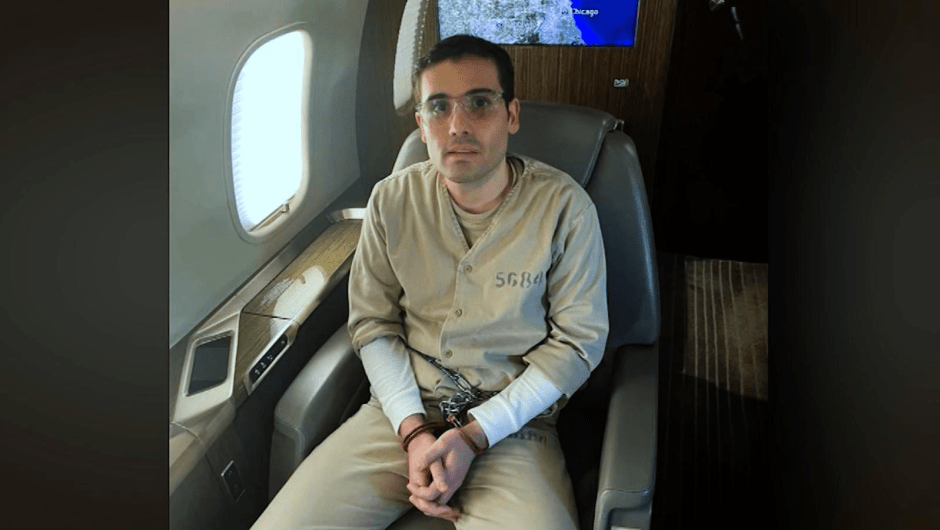Extradition Of Ovidio Guzmn: A Comprehensive Overview
The extradition of Ovidio Guzmán, the son of notorious drug lord Joaquín "El Chapo" Guzmán, has become a critical topic in the realm of international law and drug trafficking. This high-profile case not only highlights the complexities of extradition laws but also the ongoing battle against drug cartels in Mexico and the United States. In this article, we will explore the details surrounding Ovidio Guzmán's extradition, the legal implications, and the broader impact on both countries.
Ovidio Guzmán, often referred to as "El Ratón," was arrested in January 2023 by Mexican authorities and is wanted in the United States for drug trafficking charges. His extradition is a significant move in the fight against the Sinaloa Cartel, of which he is alleged to be a key leader. The case has drawn international attention, not just because of his family's notorious legacy, but also due to the implications it has for U.S.-Mexico relations and the ongoing war against drugs.
This article will delve into the intricacies of the extradition process, the background of Ovidio Guzmán, and the potential ramifications of his extradition. We aim to provide a thorough understanding of the situation, backed by credible sources and statistics, ensuring that readers are informed about this pivotal legal proceeding.
Table of Contents
1. Background of Ovidio Guzmán
Ovidio Guzmán is the son of Joaquín "El Chapo" Guzmán, the former leader of the Sinaloa Cartel, who was convicted and sentenced to life in prison in 2019. Ovidio, born on March 29, 1990, has been implicated in various criminal activities, including drug trafficking and money laundering. His rise within the cartel has been marked by violence and power struggles, especially after his father's incarceration.
Personal Information
| Name | Ovidio Guzmán López |
|---|---|
| Date of Birth | March 29, 1990 |
| Nationality | Mexican |
| Notable Relation | Son of Joaquín "El Chapo" Guzmán |
| Criminal Charges | Drug trafficking, money laundering |
2. Legal Process of Extradition
The extradition of Ovidio Guzmán involves several legal steps that must be adhered to by both Mexican and U.S. authorities. The process is governed by treaties and international law, which dictate how individuals accused of crimes can be transferred from one jurisdiction to another.
In this case, the U.S. Department of Justice has formally requested the extradition of Guzmán, citing various charges related to drug trafficking. Mexico, under its laws, must evaluate the request and determine if it aligns with its legal framework. Key points in the extradition process include:
- Formal request submission by the U.S. government.
- Assessment of the legal basis for extradition under Mexican law.
- Review by Mexican judicial authorities to ensure compliance with human rights standards.
- Final decision by the Mexican government regarding the extradition.
3. Impact on U.S.-Mexico Relations
The extradition of Ovidio Guzmán is not just a legal matter; it also has significant diplomatic implications. Historically, extradition cases have been a point of tension between the two countries. However, successful extraditions can also serve as a testament to cooperation in combating drug trafficking and organized crime.
Some potential impacts include:
- Strengthening cooperation between U.S. and Mexican law enforcement agencies.
- Addressing public concerns regarding drug violence and cartel influence.
- Potential backlash from cartel members, leading to increased violence.
4. Drug Trafficking in the U.S. and Mexico
The Sinaloa Cartel, under which Ovidio Guzmán operates, is one of the most powerful drug trafficking organizations in the world. Drug trafficking poses serious threats to both countries, contributing to violence, addiction, and economic instability.
According to the U.S. Drug Enforcement Administration (DEA), the Sinaloa Cartel is responsible for a significant portion of the narcotics entering the United States, including:
- Fentanyl
- Heroin
- Cocaine
- Methamphetamine
5. Public Reaction and Media Coverage
The arrest and potential extradition of Ovidio Guzmán have garnered extensive media coverage and public interest. Many view this as a crucial step in the fight against drug cartels, while others are concerned about the potential for increased violence in response to his extradition.
Social media platforms have played a significant role in shaping public opinion, with various discussions surrounding the implications of Guzmán's extradition. Key reactions include:
- Support for stronger measures against drug trafficking.
- Concerns over potential cartel retaliation.
- Calls for comprehensive drug policy reform in both countries.
6. Statistics on Drug Trafficking
Understanding the scale of drug trafficking is essential to grasping the significance of Ovidio Guzmán's extradition. Here are some statistics that highlight the issue:
- Over 70,000 drug overdose deaths in the U.S. in 2021.
- Approximately 90% of the heroin consumed in the U.S. is trafficked by Mexican cartels.
- Fentanyl-related deaths have increased by over 1000% since 2013.
7. Conclusion
In conclusion, the extradition of Ovidio Guzmán represents a pivotal moment in the ongoing battle against drug trafficking and organized crime. The complexities of the legal process, combined with the potential impacts on U.S.-Mexico relations and public safety, make this case one to watch closely. As both countries navigate this intricate situation, the outcomes could shape future strategies in combating drug-related violence.
We encourage readers to share their thoughts on this topic in the comments section below and to explore other articles on our site that delve into related issues.
8. Sources
- U.S. Drug Enforcement Administration (DEA) Reports
- International Law Review on Extradition Processes
- News articles from reputable sources such as BBC and The New York Times
Article Recommendations



ncG1vNJzZmilqZu8rbXAZ5qopV%2BWtLOxwKylnq%2BjanymxNOrmJ2hpJa%2FsLqMmmSorpmZtrB5xq6xppmeY7W1ucs%3D